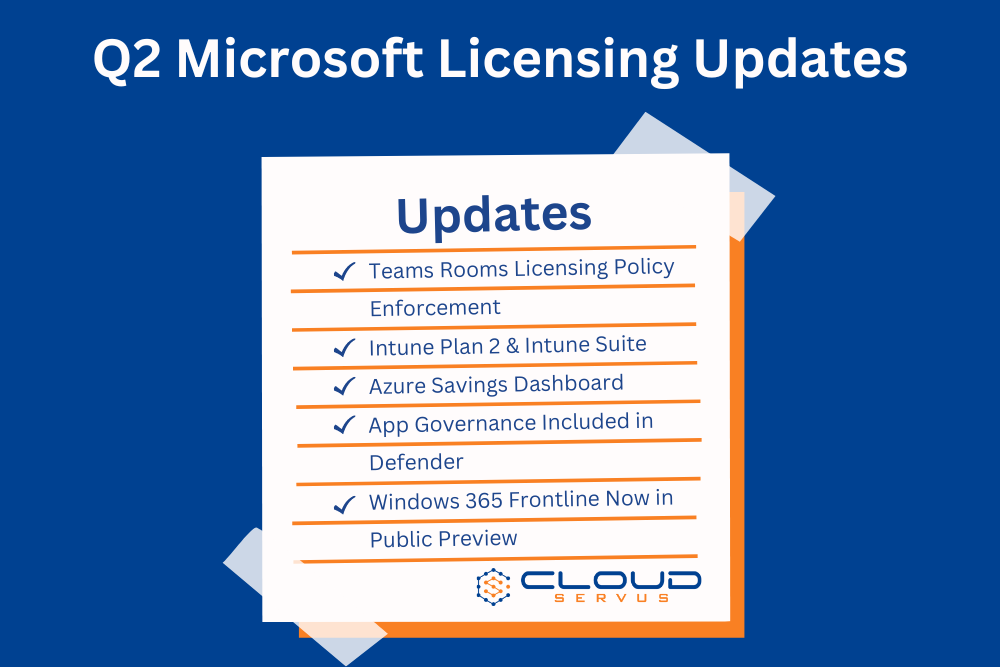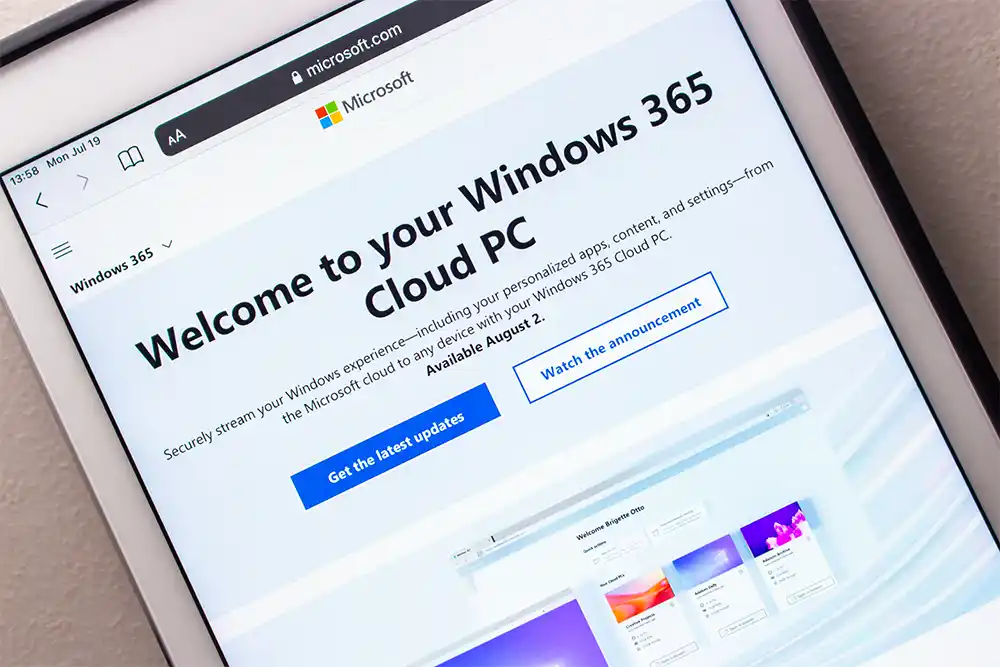Breaking Down the Latest Microsoft Licensing Updates
CloudServus aims to ensure that you stay informed about the dynamic landscape of Microsoft products and licensing. Our objective is to keep you...
2 min read
cloudservuscom Feb 28, 2024 12:06:07 PM

Recently, the tech world has been buzzing with the news of Broadcom's acquisition of VMware, a move that has left many in the industry pondering the future of VMware's products and services.
If you're a VMware user, the seismic shifts expected from this acquisition might have you considering alternatives, such as Microsoft's suite of products. Let's dive into why a move to Microsoft could be your best bet in navigating the post-acquisition landscape.
Broadcom's acquisition of VMware represents a significant shift in the cloud computing and virtualization landscape. Broadcom, a giant in the semiconductor industry, aims to strengthen its software presence by incorporating VMware's extensive portfolio of cloud infrastructure and digital workspace technologies.
While the deal promises to diversify Broadcom's offerings and enhance its position in cloud services, it has also sparked concerns among VMware's loyal customer base. Changes in licensing, potential shifts in product focus, and fears of increased costs have made current VMware users wary of what the future holds.
The acquisition has signaled aggressive changes, particularly in licensing, with VMware transitioning to a subscription-based model and ending the sale of perpetual licenses. This move, aimed at simplifying VMware's product portfolio, could impose higher costs and compel customers to expedite their migration to cloud and subscription offerings. Historical precedents from Broadcom's past acquisitions suggest possible increases in pricing and a slowdown in innovation and support, making current VMware users apprehensive.
Moreover, Broadcom's reputation for focusing on top-paying customers suggests that smaller businesses might find themselves deprioritized, facing reduced support quality and increased operational costs. These changes have left many VMware customers seeking more stable, customer-friendly alternatives.
For organizations contemplating a shift from VMware, Microsoft emerges as a formidable option, offering a comprehensive suite of cloud infrastructure and virtualization solutions. Microsoft's commitment to innovation, customer support, and transparent licensing models makes it an attractive alternative for those disenchanted with the VMware acquisition's direction.
Azure: Microsoft's flagship cloud computing service, Azure, offers an extensive array of services, including AI, Internet of Things (IoT), and more, alongside robust support for hybrid cloud environments. Its flexibility, scalability, and integration with existing Microsoft products make it a seamless fit for businesses of all sizes.
Hyper-V: For virtualization needs, Microsoft's Hyper-V provides a reliable and efficient solution, allowing users to create and manage virtual machines. Its deep integration with Windows Server and support for Linux VMs ensure a versatile and comprehensive virtualization platform.
Microsoft 365: Beyond infrastructure, Microsoft 365's suite of productivity applications ensures businesses can operate efficiently in a digital workspace, with robust security features and seamless collaboration tools.
Support and Innovation: Unlike the concerns surrounding the Broadcom acquisition, Microsoft has a long-standing reputation for prioritizing customer support and continuous innovation. Regular updates, transparent pricing, and a broad ecosystem of partners and developers ensure businesses have the support and tools they need to thrive. It evens increases benefits if you work with a Microsoft Solutions Partner who can save you money on licensing and streamline support.
For businesses reliant on VMware's ecosystem, the transition to Microsoft products offers a path to stability, innovation, and a customer-centric approach. The breadth of Microsoft's offerings ensures that businesses can find the tools they need to succeed in a digital-first world, without the uncertainties introduced by the Broadcom acquisition.
As the tech landscape continues to evolve, aligning with a partner committed to your success is more important than ever. Microsoft's proven track record in supporting businesses through digital transformation makes it a compelling choice for those looking to move away from VMware. Whether you're seeking a robust cloud platform, efficient virtualization, or comprehensive digital collaboration tools, Microsoft's ecosystem stands ready to support your business's next chapter.
If your company is looking to make the switch from VMware to Microsoft, partnering with CloudServus can ensure a seamless transition. As a Top 1% Microsoft Partner, CloudServus has the expertise, resources, and dedication to guide you through every step of your digital transformation journey.
Our deep understanding of Microsoft's suite of products and commitment to delivering tailored solutions make CloudServus the ideal partner in navigating the complexities of cloud and virtualization technologies.

CloudServus aims to ensure that you stay informed about the dynamic landscape of Microsoft products and licensing. Our objective is to keep you...

As we step into 2025, Microsoft continues to be at the forefront of innovation, driving technological advancements that redefine how businesses...

Cloud computing has transformed the business landscape, offering unparalleled flexibility and efficiency. A leader in this evolution is Microsoft...